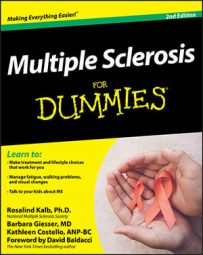Multiple sclerosis (MS) can challenge even the best of partnerships. There isn’t a young couple in the world — unless they grew up in families in which someone had a chronic illness or disability — that has a clue what “in sickness and in health” really means. The challenge is no doubt easier for those of you who already have a history together.
You’ve had an opportunity to get to know one another, build a partnership of whatever sort works best for you, and get comfortable with your individual tastes, strengths, and foibles. The same strengths and resources you have brought to bear in other difficult situations will help you with MS as well.
Those of you who are younger may have a tougher time simply because you may not know each other as well and may have less of a foundation together. Basically, you’re getting to know each other at the same time as you’re getting to know MS. Fortunately, no one needs to go it alone. Many resources and strategies are available to help couples manage the stresses and strains that a chronic illness like MS can cause.
As everyone knows, family life is busy under even the best of circumstances. Jobs, kids, and chores can be so time- and energy-consuming that many couples describe themselves as “ships passing in the night.” And even the passing-in-the-night part isn’t all that much fun because both members of the couple are so tired.
Having quality time together is important for any couple, but doing so is particularly important after MS joins the family. Relationships need time and space to grow and thrive — it may sound hokey but it’s true. For instance, communication and shared problem-solving can’t happen unless you make time for them — and you won’t make time unless you decide that communicating and joint problem-solving are high on the priority list.
Lots of couples are big fans of “date night.” Many couples find that if they don’t actually schedule this kind of time together, it never seems to happen. Not every date needs to involve soul-searching discussions (although these are important every now and then). The important thing is that you’re taking time to spend together, without all the distractions that grab your attention at home.
Because fatigue can be such a major issue in MS, plan your time together when fatigue is at a minimum. Some couples grab a few minutes early in the morning, when energy is generally highest, to enjoy a chat or a cuddle before the family’s day begins.
Evening dates may be a problem because of the fatigue factor, so some couples stake out one weekend afternoon a month for themselves. It doesn’t matter how you make it happen, it only matters that you do.

